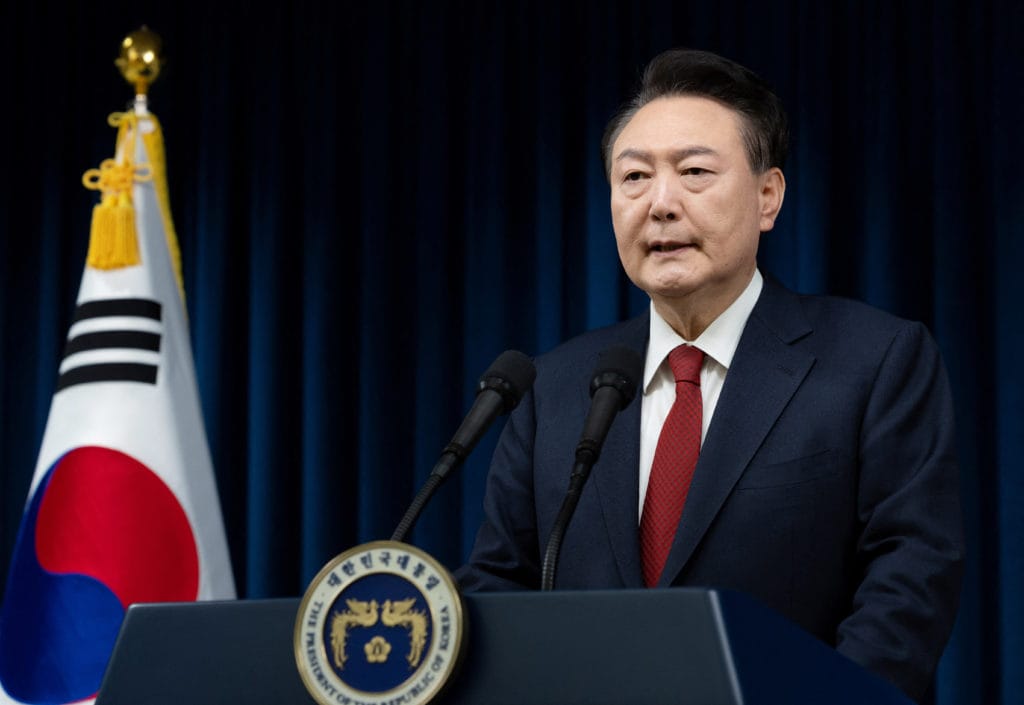South Korean President Impeachment: A Deep Dive into Yoon Suk Yeol’s Removal

South Korea’s political landscape has been rocked by a historic event: the impeachment and subsequent removal of President Yoon Suk Yeol. On April 4, 2025, the Constitutional Court upheld the National Assembly’s decision to impeach Yoon, marking only the second time in the nation’s democratic history that a sitting president has been ousted through this process. This dramatic turn of events, sparked by Yoon’s controversial declaration of martial law in December 2024, has plunged South Korea into one of its most severe political crises in decades. In this blog, we’ll explore the timeline of Yoon’s impeachment, the reasons behind it, and what it means for South Korea moving forward.
The Spark: Martial Law Declaration
The saga began on December 3, 2024, when President Yoon Suk Yeol shocked the nation by declaring martial law—a move not seen in South Korea since the authoritarian regimes of the 1980s. Yoon justified the decree as a necessary step to “protect the constitutional order” and eliminate “pro-North Korean forces,” accusing the opposition-controlled National Assembly of obstructing his agenda. However, the declaration lasted just six hours before the National Assembly unanimously overturned it, reflecting widespread bipartisan outrage.
Public reaction was swift and fierce. Mass protests erupted in Seoul and other cities, with millions of South Koreans demanding accountability. Yoon’s approval ratings, already low due to earlier controversies, plummeted further, and polls showed overwhelming support for his removal. The martial law fiasco was widely seen as a reckless gamble that undermined South Korea’s hard-earned democratic credentials.
The Impeachment Process
South Korea’s constitution outlines a rigorous process for impeaching a president. Under Article 65, the National Assembly must pass an impeachment motion with a two-thirds majority (200 out of 300 votes), after which the Constitutional Court decides whether to uphold or overturn it. Yoon faced his first impeachment attempt on December 7, 2024, but it failed when members of his ruling People Power Party (PPP) boycotted the vote, preventing a quorum.
Undeterred, the opposition, led by the Democratic Party (DPK), regrouped and introduced a second motion. On December 14, 2024, the National Assembly successfully impeached Yoon with a vote of 204-85, suspending his presidential powers. Prime Minister Han Duck-soo stepped in as acting president, but the political turmoil was far from over. Han himself faced impeachment on December 27, 2024, over disputes about appointing Constitutional Court justices, though the court later reinstated him on March 24, 2025.
The Constitutional Court’s Ruling
Yoon’s fate rested with the Constitutional Court, which had 180 days to deliberate. The court, despite operating with only eight justices due to unfilled vacancies, delivered a unanimous 8-0 decision on April 4, 2025, removing Yoon from office. The justices ruled that his martial law declaration constituted a grave violation of the constitution, amounting to an abuse of power and an attempt to subvert democracy. Yoon also faced separate criminal charges of rebellion, which could lead to severe penalties, including life imprisonment or the death penalty, though his presidential immunity does not cover such offenses.
This ruling echoed the 2017 impeachment of Park Geun-hye, the only other South Korean president removed via this process. In contrast, former President Roh Moo-hyun was impeached in 2004 but reinstated by the court, highlighting the high bar for removal.
A Nation Divided
The impeachment process exposed deep divisions within South Korea. While the majority of citizens supported Yoon’s ouster—polls showed over 70% favored impeachment—his conservative base remained loyal. Pro-Yoon rallies, inspired by slogans like “Stop the Steal” borrowed from U.S. politics, clashed with anti-Yoon demonstrations, turning Seoul’s streets into a battleground of competing ideologies. Supporters claimed Yoon was a victim of a liberal conspiracy, while critics accused him of authoritarian tendencies reminiscent of past dictators like Park Chung Hee.
The political fallout also strained South Korea’s international relations. Allies like the United States expressed concern over the instability, with U.S. Secretary of State Antony Blinken noting the martial law episode as “badly misjudged” while praising South Korea’s democratic resilience. Japan, a key partner under Yoon’s administration, worried about the potential rise of a less cooperative government.
Recent Posts
What Happens Next?
With Yoon’s removal confirmed, South Korea now faces a snap presidential election within 60 days—by early June 2025 at the latest. Han Duck-soo will remain acting president until a new leader is elected. The Democratic Party’s Lee Jae-myung, recently cleared of election fraud charges, is a frontrunner, though his own legal battles could complicate his candidacy. The PPP, meanwhile, must regroup after this crushing blow, with internal rifts threatening its future.
Economically, the crisis has already taken a toll. The Korean won hit a 15-year low amid the uncertainty, and business confidence has waned. The next president will inherit a polarized nation, a sluggish economy, and pressing foreign policy challenges, including North Korea’s nuclear threats and trade tensions with the U.S. under the incoming Trump administration.
Lessons from History
South Korea’s impeachment saga underscores the strength and fragility of its democracy. The nation has weathered political storms before—Park Geun-hye’s removal led to Moon Jae-in’s presidency and a period of stabilization. Yet, the current crisis feels different, with global headwinds and domestic polarization amplifying the stakes. Unlike past recoveries aided by favorable external conditions, South Korea now faces a tougher road ahead.
Yoon Suk Yeol’s impeachment is more than a political footnote; it’s a testament to the power of public will and institutional checks in a vibrant democracy. As South Korea prepares for its next chapter, the world watches closely, eager to see how this resilient nation navigates its latest test.
